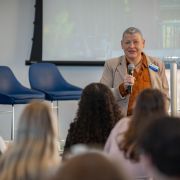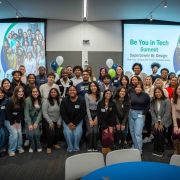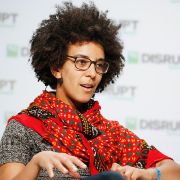
About
Through interdisciplinary and collaborative innovation, we are driving the future of the Information Age.
Opening its doors in 1999, the College of Information Sciences and Technology at Penn State is home to a thriving community of students, scholars, staff, alumni, and friends. Through innovative research and a student-centered approach to interdisciplinary education, we are delivering on the college's founding mission to prepare leaders for the Information Age. Our passionate students, renowned faculty, and supportive alumni network have propelled the college to forge new frontiers and create a meaningful impact at Penn State and beyond.


Directory

Location and Contact

Employment Opportunities

From the Dean

Mission, Vision, and Strategic Plan

College Leadership

Departments

Our History

Diversity, Equity, Inclusion and Belonging

Dean's Advisory Board

iConnect Magazine

IST Honor Code

George J. McMurtry Faculty Excellence in Teaching and Learning Award

Distinguished Lecture Series
Recent News

February 26, 2026
Chatbots overemphasize sociodemographic stereotypes, researchers report

February 23, 2026
Register to watch students pitch their startups at the Inc.U competition

February 19, 2026
Kenneth Huang to present lecture Feb. 20 at Cornell

February 18, 2026
IST, engineering students competing in global Amazon Nova AI Challenge
Upcoming Events
Mar
31
PENN STATE EXCLUSIVE: Start Your Career at SAP
Date & Time: March 31, 2026, 4:00 pm–5:00 pm
Location: Virtual

Mar
10
Pittsburgh Connect: Spring Break Service Day
Date & Time: March 10, 2026, 9:30 am–12:30 pm
Location: Families Matter Food Pantry - 186 Wagner Rd Monaca, PA 15061
Mar
12
Philadelphia Connect: Spring Break Service Days
Dates: March 12 – February 12, 2026
Location: Various Sites, see site locations, Philadelphia, PA
Mar
13
Philadelphia Connect: Spring Break Service Days
Dates: March 13 – February 13, 2026
Location: Various Sites, see site locations, Philadelphia, PA
